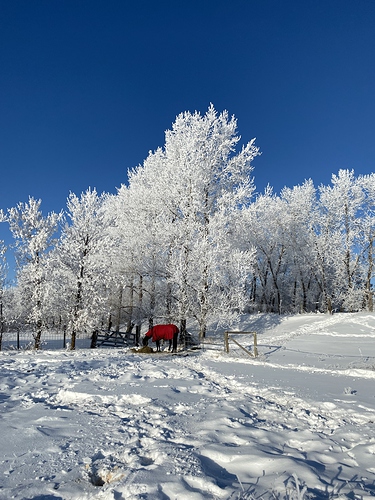I live in New Zealand, Auckland to be precise.
We have had overnights of 5C (41F) which I appreciate is not that cold compared to other countries (or even our South Island). There has been quite substantial wind chill lowering that temperature.
We have had a really wet winter, not helped by several ‘one in 100 year’ weather events in January and February (our summer) resulting in catastrophic flooding in many regions. Our water table is saturated, and while our place drains really well, it is wet and muddy.
I’ve been putting two of mine (I have four horses, paddocked in two pairs) in at night simply to try and get them off the land. My mare has been lying down overnight as evidenced by the shavings on her rug and in her mane and tail.
I have grass, albeit minimal, but it is trying to grow as in between the wet and cold, it has been sunny.
We had a frost the last two mornings and I think my horses’ brains froze as they were stupider than stupid when putting back out 
Anyways, how do those that live in actual cold conditions cope? I appreciate you have better wet weather and cold weather clothing that is usually available to us in New Zealand, but seriously, temperatures below zero, reduced sun hours, every_single_day for months on end, how do you cope?
FWIW, I don’t drink so that isn’t a coping mechanism avialable to me 

